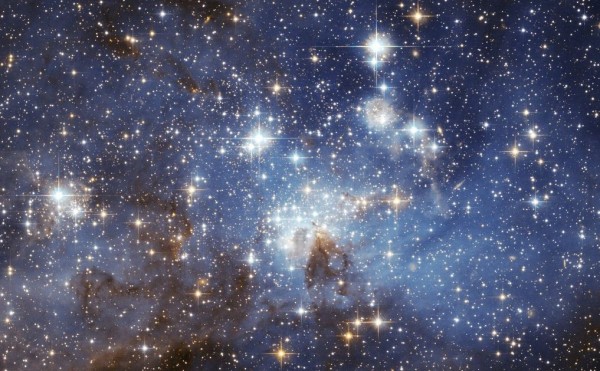The universe has apparently begun an inexorable journey towards extinction that will reach a climax when it stops expanding and collapses on itself.
That cataclysmic event, called "The Big Crunch," is expected to take place in just tens of billions of years from now, which is a relatively short span of time in the cosmological scale of things. The Big Crunch will destroy all matter as we know it, said a recent study published by Physical Review Letters.
Physicists Nemanja Kaloper at the University of California, Davis and Antonio Padilla at the University of Nottingham, the study authors, said dark energy could be the main cause of this impending collapse and have "proposed a mechanism" for this collapse.
"The fact that we are seeing dark energy now could be taken as an indication of impending doom, and we are trying to look at the data to put some figures on the end date.
"Early indications suggest the collapse will kick in a few tens of billions of years, but we have yet to properly verify this," Padilla told Phys.org.
Dark energy, which accounts for about 75 percent of the mass of the Universe, acts in opposition to gravity and is causing the expansion of the Universe to accelerate. The Universe was created some 13.8 billion years ago following the Big Bang.
Padilla said the study is helping resolve unanswered questions in physics such as the "cosmological constant" problem that predicts the vacuum energy density of the Universe causing the expansion could be much larger that what's observed.
The cosmological constant proposed by Albert Einstein seeks to explain why the Universe isn't collapsing. This theory, however, was mostly disregarded starting in 1998 because of the discovery of the accelerating universe.
The cosmological constant was then given a non-zero value with many scientists saying the expansion was the sign of an imminent collapse. This new study claims that once the collapse begins, the universe will enter a period of "slow roll" that's causing the accelerated expansion seen today.
The universe will eventually stop expanding and reach a turnaround point at which it begins to shrink, causing a "Big Crunch", the opposite of the Big Bang.
"There is much to do," Padilla said. "Over the longer term, we would like to understand how our theory could emerge from a more fundamental theory, such as string theory. It is also important to ask what happens when we consider vacuum energy corrections from quantum gravity."
"The present epoch of acceleration may be evidence of impending doom. . . A detailed analysis to better quantify these predictions is certainly warranted."


